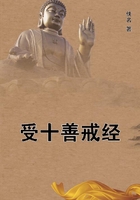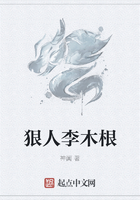In 1670 the king excluded physicians of the Reformed faith from the office of dean of the college of Rouen, and allowed only two Protestant doctors within its precincts. In 1671 a decree was published commanding the arms of France to be removed from all the places of worship belonging to the pretended Reformers. In 1680 a proclamation from the king closed the profession of midwife to women of the Reformed faith. In 1681 those who renounced the Protestant religion were exempted for two years from all contributions towards the support of soldiers sent to their town, and were for the same period relieved from the duty of giving them board and lodging. In the same year the college of Sedan was closed--the only college remaining in the entire kingdom at which Calvinist children could receive instruction. In 1682 the king commanded Protestant notaries; procurators, ushers, and serjeants to lay down their offices, declaring them unfit for such professions; and in September of the same year three months only were allowed them for the sale of the reversion of the said offices. In 1684 the Council of State extended the preceding regulations to those Protestants holding the title of honorary secretary to the king, and in August of the same year Protestants were declared incapable of serving on a jury of experts.
In 1685 the provost of merchants in Paris ordered all Protestant privileged merchants in that city to sell their privileges within a month. And in October of the same year the long series of persecutions, of which we have omitted many, reached its culminating point--the: Revocation of the Edict of Nantes. Henri IV, who foresaw this result, had hoped that it would have occurred in another manner, so that his co-religionists would have been able to retain their fortresses; but what was actually done was that the strong places were first taken away, and then came the Revocation; after which the Calvinists found themselves completely at the mercy of their mortal enemies.
>From 1669, when Louis first threatened to aim a fatal blow at the civil rights of the Huguenots, by abolishing the equal partition of the Chambers between the two parties, several deputations had been sent to him praying him to stop the course of his persecutions; and in order not to give him any fresh excuse for attacking their party, these deputations addressed him in the most submissive manner, as the following fragment from an address will prove:
"In the name of God, sire," said the Protestants to the king, "listen to the last breath of our dying liberty, have pity on our sufferings, have pity on the great number of your poor subjects who daily water their bread with their tears: they are all filled with burning zeal and inviolable loyalty to you; their love for your august person is only equalled by their respect; history bears witness that they contributed in no small degree to place your great and magnanimous ancestor on his rightful throne, and since your miraculous birth they have never done anything worthy of blame; they might indeed use much stronger terms, but your Majesty has spared their modesty by addressing to them on many occasions words of praise which they would never have ventured to apply to themselves; these your subjects place their sole trust in your sceptre for refuge and protection on earth, and their interest as well as their duty and conscience impels them to remain attached to the service of your Majesty with unalterable devotion."
But, as we have seen, nothing could restrain the triumvirate which held the power just then, and thanks to the suggestions of Pere Lachaise and Madame de Maintenon, Louis XIV determined to gain heaven by means of wheel and stake.
As we see, for the Protestants, thanks to these numerous decrees, persecution began at the cradle and followed them to the grave.
As a boy, a Huguenot could--enter no public school; as a youth, no career was open to him; he could become neither mercer nor concierge, neither apothecary nor physician, neither lawyer nor consul. As a man, he had no sacred house, of prayer; no registrar would inscribe his marriage or the birth of his children; hourly his liberty and his conscience were ignored. If he ventured to worship God by the singing of psalms, he had to be silent as the Host was carried past outside. When a Catholic festival occurred, he was forced not only to swallow his rage but to let his house be hung with decorations in sign of joy; if he had inherited a fortune from his fathers, having neither social standing nor civil rights, it slipped gradually out of his hands, and went to support the schools and hospitals of his foes.
Having reached the end of his life, his deathbed was made miserable; for dying in the faith of his fathers, he could not be laid to rest beside them, and like a pariah he would be carried to his grave at night, no more than ten of those near and dear to him being allowed to follow his coffin.
Lastly, if at any age whatever he should attempt to quit the cruel soil on which he had no right to be born, to live, or to die, he would be declared a rebel, his goads would be confiscated, and the lightest penalty that he had to expect, if he ever fell into the hands of his enemies, was to row for the rest of his life in the galleys of the king, chained between a murderer and a forger.
Such a state of things was intolerable: the cries of one man are lost in space, but the groans of a whole population are like a storm; and this time, as always, the tempest gathered in the mountains, and the rumblings of the thunder began to be heard.
First there were texts written by invisible hands on city walls, on the signposts and cross-roads, on the crosses in the cemeteries: these warnings, like the 'Mene, Mene, Tekel, Upharsin' of Belshazzar, even pursued the persecutors into the midst of their feasts and orgies.
Now it was the threat, "Jesus came not to send peace, but a sword."















